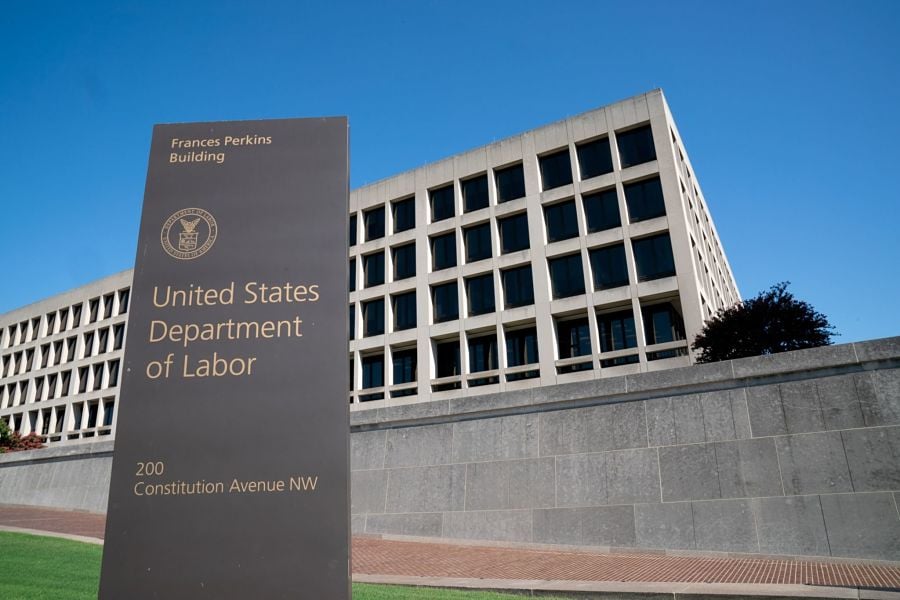

As the Department of Labor contemplates another iteration of its financial advice rule to curb conflicts of interest in recommendations for retirement accounts, an insurance trade association is warning that the DOL should not base such a regulation on a fiduciary standard.
On Monday, the American Council of Life Insurers released a report that shows investors with moderate assets who use financial advisers who charge commissions say they need and trust those advisers and want to continue working with them.
The ACLI and other opponents of a fiduciary standard of care for retirement savings have argued for years that such a standard would limit access to commission-based advice and favor financial advisers who charge a fee. They assert that advice for a fee is more costly and would price out middle-income retirement savers.
The ACLI online survey, which was conducted by Greenwald Research, supported those assumptions. It was based on responses between March 10 and April 18 from 506 participants who were 55 to 70 years old, earned between $35,000 and $149,999 a year and had $25,000 to $235,000 in savings and investments.
Examples of survey questions include those that focused on whether a federal government effort to dictate how financial professionals get paid would do more harm than good, whether investors should have access to advisers who charge commissions and fees and whether a commission is sometimes better than a fee.
The answers came out overwhelmingly in favor of commission-charging advisers.
“The survey found that moderate-income retirement savers strongly oppose government regulations that would discourage or prohibit financial professionals from being compensated by commission,” Mathew Greenwald, founder and managing director of Greenwald Research, said in a statement. “They feel that compensation by commission is sometimes preferable to ongoing fees.”
An investor advocate, however, dismissed the ACLI report.
“The survey is a transparent effort by insurers to prevent any true best interest standard for insurance producers so life insurers can maintain the same business model driven by conflict of interest,” Birny Birnbaum, director of the Center for Economic Justice, wrote in an email. “The survey questions assume the false narrative that a true best interest standard will reduce consumer access to financial advice.”
Birnbaum questioned the assumptions undergirding the ACLI poll.
“The survey premise is also absurd, that consumers understand the difference between a fiduciary and a non-fiduciary relationship, when, in fact, consumers mistakenly believe that all their financial advisers operate under a true best interest standard of care,” he wrote.
Opponents of the first DOL fiduciary rule, which was promulgated during the Obama administration, succeeded in getting it vacated by a federal court. The Trump administration wrote its own fiduciary rule, known as prohibited transaction exemption 2020-02. Most of it was implemented in February.
The Biden DOL has on its regulatory agenda a proposed rulemaking that centers on the definition of a fiduciary. The next regulation could expand the number of people who are deemed fiduciaries to include more insurance professionals, including independent agents who currently operate under a rule — known as PTE 84-24 — that is less stringent than the Trump advice rule.
Acting DOL assistant secretary Ali Khawar said last week at the Insured Retirement Institute annual conference that the agency was working on the next fiduciary rule but he didn’t give a timeline for when it might be released.
Financial industry groups are revving up to resist the regulation. The ACLI survey can be seen as part of that salvo, warning DOL and lawmakers not to go too far.
“They should be leery about any action that would impede the ability of people with moderate assets to work with a financial professional,” Greenwald said in an interview.
Consumer and investor advocates are encouraging the DOL to release a strong fiduciary proposal soon.

Rajesh Markan earlier this year pleaded guilty to one count of criminal fraud related to his sale of fake investments to 10 clients totaling $2.9 million.

From building trust to steering through emotions and responding to client challenges, new advisors need human skills to shape the future of the advice industry.

"The outcome is correct, but it's disappointing that FINRA had ample opportunity to investigate the merits of clients' allegations in these claims, including the testimony in the three investor arbitrations with hearings," Jeff Erez, a plaintiff's attorney representing a large portion of the Stifel clients, said.

Chair also praised the passage of stablecoin legislation this week.

Maridea Wealth Management's deal in Chicago, Illinois is its first after securing a strategic investment in April.
Orion's Tom Wilson on delivering coordinated, high-touch service in a world where returns alone no longer set you apart.
Barely a decade old, registered index-linked annuities have quickly surged in popularity, thanks to their unique blend of protection and growth potential—an appealing option for investors looking to chart a steadier course through today's choppy market waters, says Myles Lambert, Brighthouse Financial.
